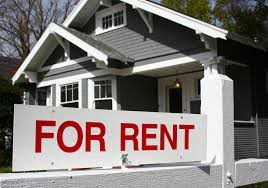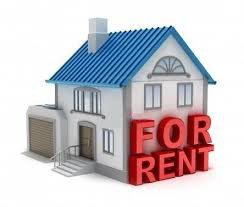
Why Buy Condo Insurance | Condo Landlord Insurance | Condo Hazard Insurance?
January 22, 2020
Top 10 Security Tips for Keeping Cars and Homes safe this year!
January 31, 2020Rental property insurance and Landlord insurance are actually the same thing; they are both also known as Hazard Insurance by mortgage companies and simply Home Insurance by many property owners. Although you can name the policy whatever you’d like, it is important to differentiate the coverage offered by the actual policy as a Rental Home risk is quite different to an Owner Occupied Home risk.
What Does Landlord Insurance Cover?
A Landlord Insurance Policy will afford coverage for the Dwelling (Building), Other Structures (Fences, exterior structures etc…), Loss of Rental Income (Due to covered loss) & Premises Liability. It is important not to confuse this coverage with a similarly looking run down on Homeowners Insurance. The definitions on a Homeowners Insurance Policy clearly states that the home will be occupied by the titled owner as the primary residence; this is never taken lightly and no property owner should assume that the insurance company will simply pay out damages on a claim even if the occupancy has changed – quite the contrary is true!
What Type of Rental Property Insurance?
Although there are a few different insurance form variations, most 1 – 4 unit rental dwellings are covered by what’s called ‘Special Form Dwelling Fire Insurance’, it is also known as a Form DP3. The Form DP3 provides the broadest form of coverage and will protect the property against all perils except those explicitly excluded in the policy contract.
How Much Does Rental Home Insurance Cost?
Rental Home Insurance will usually cost an average of 25% greater than its similar equivalent in a homeowners insurance policy. The slightly higher premium rates are attributed to a tenant occupied home does pose a higher risk than the same home occupied by the owner. At the same time, Landlords Insurance or Rental Home Insurance is usually purchased without coverage for Personal Property and certainly without many bells and whistles which may be present on the Homeowners Policy; thus, in some areas around the country, you may actually find that the Landlords Insurance premium may be less than purchasing Homeowners Insurance.
BEWARE of the Occupancy Clause!!!
One of the most serious and reoccurring errors which occur and are regularly witnessed by insurance carriers, is seeing property owners calling and obtaining quotes for both Homeowners Insurance and Landlords Insurance stating that they are not sure if they will live in the home or rent it out… In many of these cases, the property owner may be shopping for the cheapest premium option and simply buy that policy without respect to the very important OCCUPANCY CLAUSE. This may be done for a few reasons and not always for price; some investors purchase rental homes using an Owner Occupied Mortgage which most often comes with a lower interest rate, property owners sometimes will keep the story going so to speak thereby telling the insurance company the same thing that was told to the mortgage company; this is a very dangerous path and will be discovered for certain upon the occurrence of a claim. In most cases, the premium will be refunded to the customer and the policy will be cancelled without the payment of the claim- the reason sited will most likely be ‘Material Misrepresentation of Risk’. The Occupancy is one of the most serious items of consideration for insurance companies.
How to Buy Rental Home Insurance / Landlord Insurance?
As always, do not hesitate to contact a licensed insurance representative with any questions or for guidance and advice on how to proceed. In many cases, a licensed representative may be able to offer options which the property owner may not be aware of producing a cheaper rental home insurance rate.




